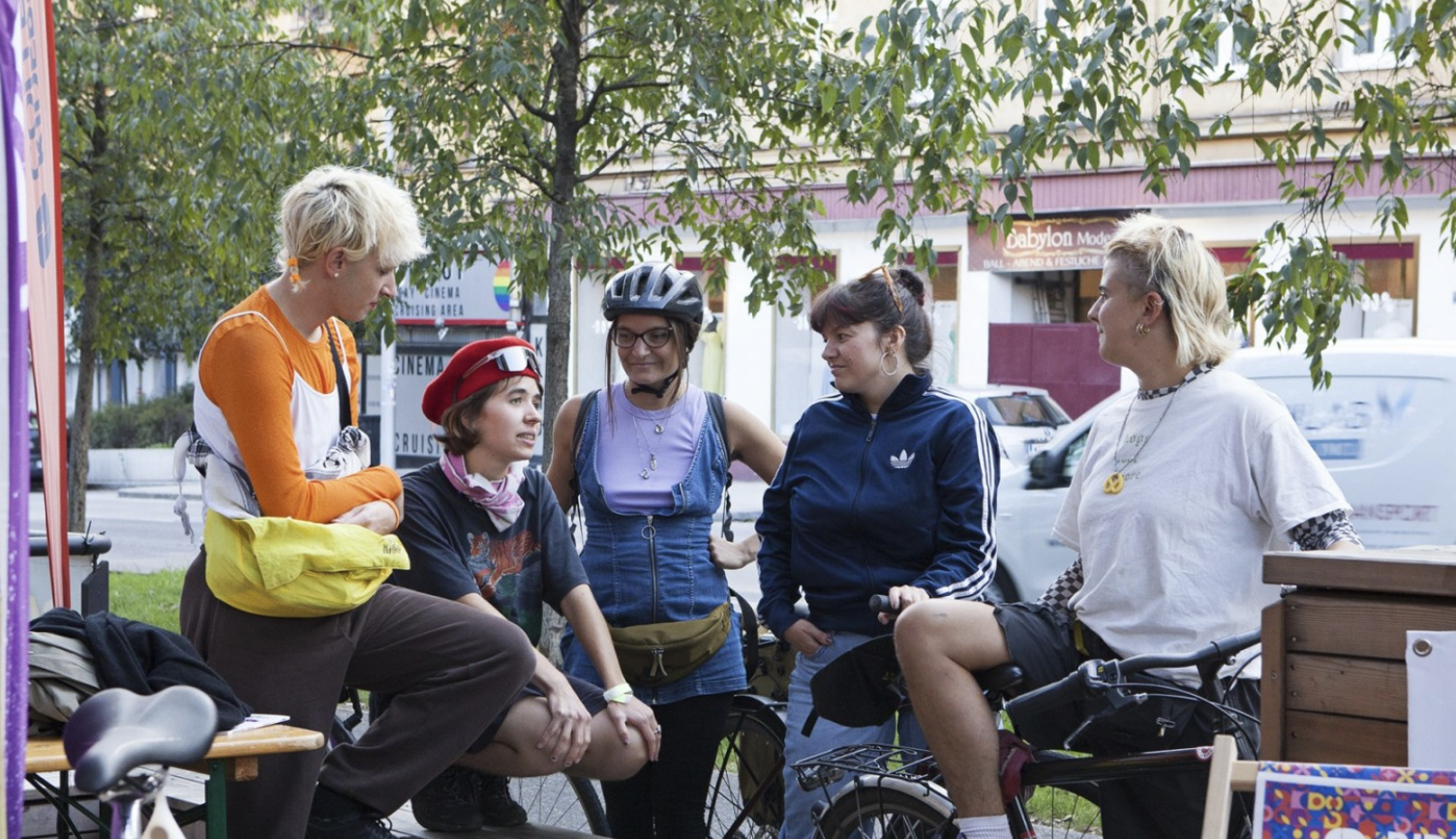
 credits: WIENWOCHE/ Olesya Kleymenova
credits: WIENWOCHE/ Olesya Kleymenova WE WISH YOU A SAFE RIDE
2024
Artistic Intervention,
Vienna, Austria
Collaboration with Riders Collective
In Austria, food delivery workers, often migrants, face precarious gig‑work conditions without standard labour protections. A former delivery‑platform CEO once remarked, “The only requirement for a job as a food delivery person is to be able to ride a bike.” Yet these workers frequently endure freelance contracts that exclude them from collective agreements and leave them vulnerable to exploitation. During WIENWOCHE, “state of matter” Verein (Ana Mikadze, Fabio Hofer) called for active solidarity in connecting the festival audience with the riders, whose work shifts were taken over by volunteers on a solidarity basis. In this way, the riders used their time off duty to learn about their rights and connect to colleagues, who they have been deliberately disconnected from through the working environments dictated by the platforms.
A series of workshops and artistic public programming accompanied the intervention:
“Know Your Rights”, conducted by legal advisor Dania Kabil of the ÖGB, guiding riders through real‑life labour law scenarios. Sessions on how to organize collectively, and on health & care for riders with health professionals. Performative onboarding and guided tours, such as “Mapping Vienna’s Hidden (Food) Delivery Infrastructures”, as well as a screening of video portraits of Vienna-based riders.
*To protect the anonymity and privacy of food delivery riders, no photographs of them have been taken as part of this project.
2024
Artistic Intervention,
Vienna, Austria
Collaboration with Riders Collective
In Austria, food delivery workers, often migrants, face precarious gig‑work conditions without standard labour protections. A former delivery‑platform CEO once remarked, “The only requirement for a job as a food delivery person is to be able to ride a bike.” Yet these workers frequently endure freelance contracts that exclude them from collective agreements and leave them vulnerable to exploitation. During WIENWOCHE, “state of matter” Verein (Ana Mikadze, Fabio Hofer) called for active solidarity in connecting the festival audience with the riders, whose work shifts were taken over by volunteers on a solidarity basis. In this way, the riders used their time off duty to learn about their rights and connect to colleagues, who they have been deliberately disconnected from through the working environments dictated by the platforms.
A series of workshops and artistic public programming accompanied the intervention:
“Know Your Rights”, conducted by legal advisor Dania Kabil of the ÖGB, guiding riders through real‑life labour law scenarios. Sessions on how to organize collectively, and on health & care for riders with health professionals. Performative onboarding and guided tours, such as “Mapping Vienna’s Hidden (Food) Delivery Infrastructures”, as well as a screening of video portraits of Vienna-based riders.
*To protect the anonymity and privacy of food delivery riders, no photographs of them have been taken as part of this project.